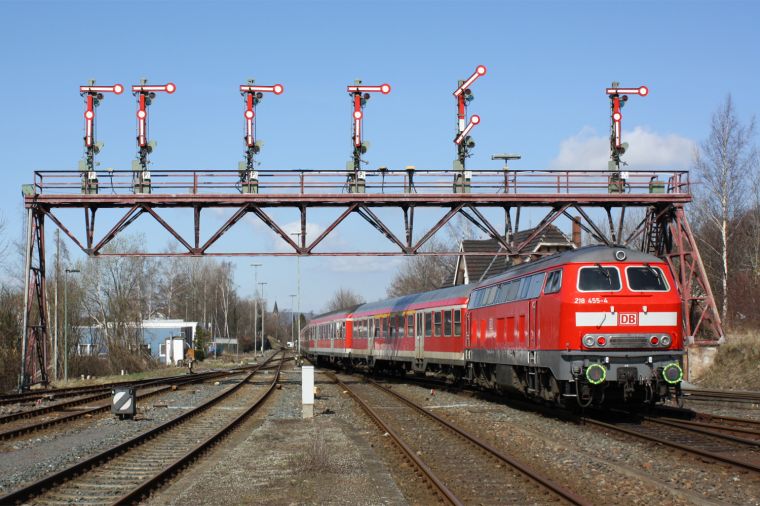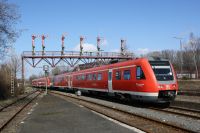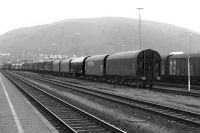Bad Harzburg Signal Bridge

Posted: 30 March 2009

This work is licensed under a Creative Commons Germany license.
Notes
I’m not too convinced of this image, seeing how some idiot decided to paint green rings around the buffers of 218 455 that don’t suit the locomotive at all, but there seem to be a couple of 218 fans around here so I decided to post it anyway. I’m going to write more about the train, the signal bridge and Bad Harzburg in general later, but first of all, a development in the german railroad business: Hartmut Mehdorn, CEO of DB, has resigned (or at least declared that he’s about to resign).
Apparently, DB has long been spying on employees both to prevent corruption but also against bad press and to hinder strikes. Experts suppose that a large number of laws were violated during all this over a long time, and with knowledge of DB management. Mehdorn continues to deny all these charges, but unions and many politicians (DB is owned to 100% by the federal government) have cried loudly for his resignation.
In theory, one could say that Mehdorn was very successful during his run as DB CEO. The company has turned a profit for the last few quarters and it was on track towards at least partial privatization (although some say that changed accounting practices may have helped there).
Practically, however, a lot of problems came along with these. The german rail network is in a bad shape with slow-orders and capacity problems (for example due to vanishing crossing points on single track routes). Private railroad companies complain that DB is making access to it’s network extremely hard to prevent competition in the regional passenger- and long-distance freight sectors, where they have been able to take quite a lot of market share from the respective DB divisions. DB is the only one who owns any significant rail infrastructure in Germany, and is (like all other rail infrastructure owners) required to allow anyone non-discriminatory access by EU law. In the passenger area, all long-distance trains have been either upgraded to more expensive InterCity (or ICE) trains or downgraded to regional service, which means the states are required to pay for them. In the freight area, lots of private spurs have been shut down, meaning that railroads are less and less available for shippers of anything but containers or unit trains. The end result is that DB has better results, but it’s customers are less and less satisfied with the company.
Mehdorn gone won’t solve the problems with Germany’s railroads. There’s not even a guarantee that things won’t get worse now. Still, it looks like change in an area that desperately needed some.

 Deutsche Version
Deutsche Version Entire Gallery
Entire Gallery

 Next Picture
Next Picture
 Previous Picture
Previous Picture